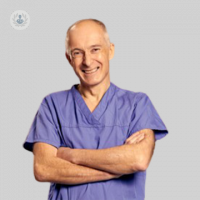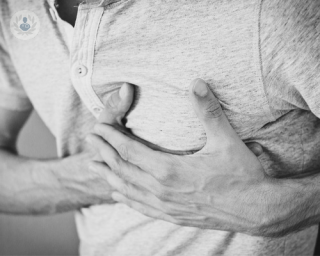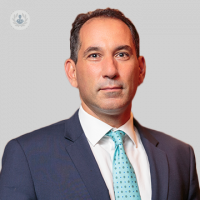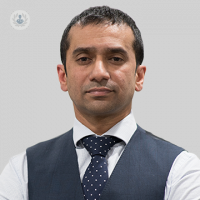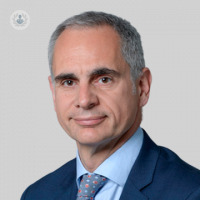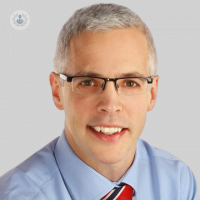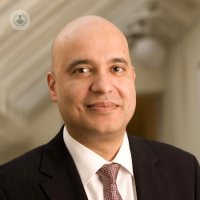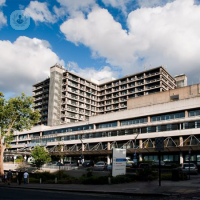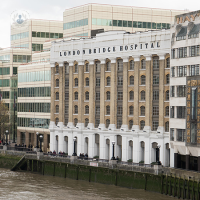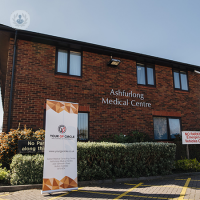Dysphagia
Professor Martin Anthony Birchall - Otolaryngology / ENT
Created on: 10-21-2015
Updated on: 06-20-2023
Edited by: Conor Dunworth
What is dysphagia?
Dysphagia is the medical term for a person who has swallowing difficulties. Some people cannot swallow certain foods or liquids, whilst others have trouble swallowing at all. The condition is usually caused by nerve or muscle problems, and is more common in the older generation and babies. There are three different types:
- Oral dysphagia – which occurs in the mouth and is sometimes caused by tongue weakness, especially following a stroke.
- Pharyngeal dysphagia – is a problem in the throat that is normally caused by neurological problems, such as Parkinson’s disease.
- Oesophageal dysphagia – is in the oesophagus and is usually because of a blockage or irritation and requires surgery.

What are the symptoms of dysphagia?
The symptoms of dysphagia may include:
- Pain or discomfort when swallowing
- Expulsion of food or liquid from the mouth
- Involuntary drooling
- Residues of food in the mouth or tongue
- Frequent clearing of the throat
- Swallowing in very small pieces
- The feeling of a blockage in the throat
- Frequent bronchitis and pneumonia
What are the causes of dysphagia?
Normally, dysphagia occurs secondary to another disease or injury, such as:
- A condition to affect the nervous system – stroke, head injury, multiple sclerosis, dementia
- Cancer
- Gastro-oesophageal reflux disease (GORD)
Risk factors for dysphagia include ageing as this is due to general wear and tear on the body over time. Neurological conditions can make dysphagia more likely.
How is dysphagia diagnosed?
A speech-language specialist will try to determine the problem. The patient will take a:
- Swallow study – where the specialist tests different consistencies of food and liquid.
- Barium swallow test – after swallowing a barium-containing liquid, the barium shows up in an X-ray to help the doctor see what is happening in the muscles of the oesophagus.
- Endoscopy – a camera is used to look down the oesophagus.
How is dysphagia treated?
The treatment depends on the type of dysphagia that the patient has. Oral dysphagia is a neurological problem and treatment can be a challenge. Swallowing therapy can be done with a speech and language therapist. The patient may also need to be fed through a feeding tube. A nasal tube or PEG (percutaneous endoscopic gastrostomy) is used to feed a patient who is at risk of pneumonia, malnutrition or dehydration.
Oesophageal dysphagia usually requires surgery. If the oesophagus needs to be widened then a small balloon is inserted and then removed. In cases of stiff muscle, Botox® is used to paralyse it in order to reduce constriction. If cancer is the cause of dysphagia, the patient is referred to a specialist for treatment to have a tumour removed surgically.
